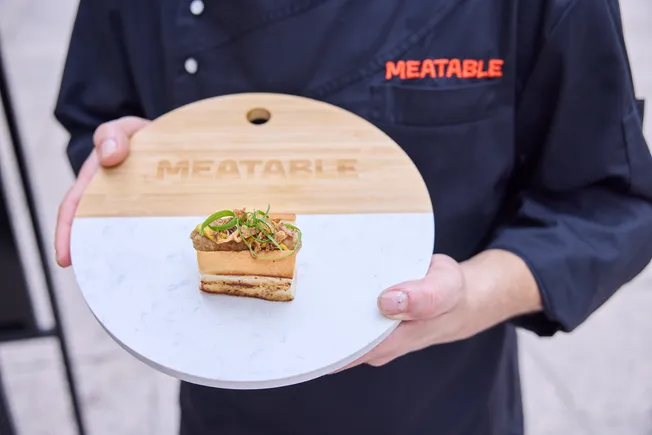Jeff “Trip” Tripician, with 38 years of experience in the agriculture industry, transitioned to dairy and then to meat during his career. He worked in various roles within marketing at Proctor & Gamble, Sara Lee, Borden Dairy, Frontier Natural Products, and eventually became the President of Perdue Farms.
Throughout his career, Tripician observed the relationship between food processors and producers, realizing the importance of a partnership between the two. This awareness led him to his current role as CEO of Meatable, a cultivated meat company.
Initially skeptical of the idea, Tripician was convinced by Meatable’s focus on addressing issues such as climate change, food insecurity, and sustainability in the meat industry. He was impressed by the company’s innovative approach to producing meat in a fraction of the time traditional methods require.
Seeing Meatable as a visionary company, Tripician took on the role of CEO, aiming to innovate and pioneer the cultivated meat industry without threatening traditional meat producers.
Vastly different but mutually dependent
Tripician’s goal is to collaborate with traditional meat companies by licensing Meatable’s manufacturing technology. He envisions a model where cultivated meat can complement traditional meat production, offering a sustainable and scalable solution for the industry.
Despite the ongoing debate between cultivated and traditional meat industries, Tripician believes in the potential for both sectors to work together for mutual benefit. His strategy involves providing technology and resources to meat companies to integrate cultivated meat into their product offerings.
By experimenting with this approach in Singapore and partnering with key players in the meat industry, Tripician aims to demonstrate the viability and benefits of cultivated meat production.
A different kind of leadership
Unlike other CEOs in the cultivated meat space, Tripician brings a unique perspective as a non-scientist. He believes that approaching the meat industry with solutions that are cost-effective and scalable is crucial for the success of cultivated meat.

